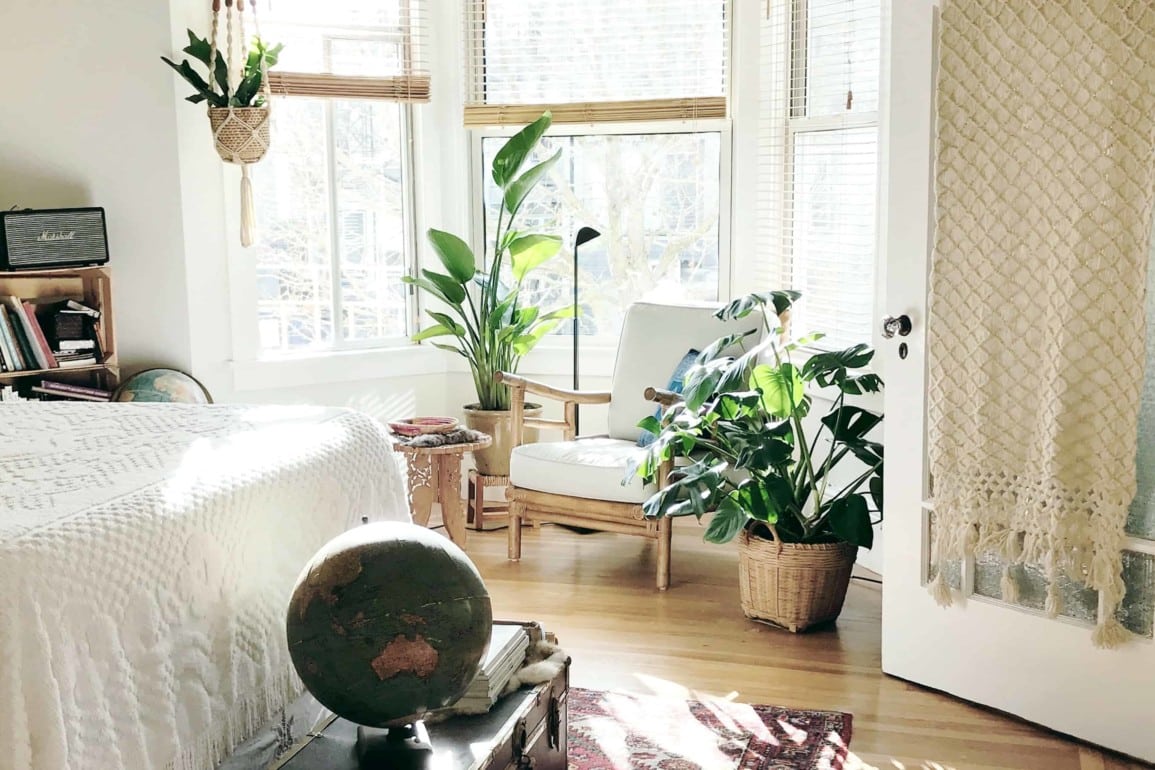A good night’s sleep isn’t just something that we all crave — it’s something we need. Unfortunately, there are many different things that can stop you from getting the quality rest you need, from anxiety and stress to poor air quality. We’ve found 18 aesthetic plants that improve your bedroom environment.
If up until now you’ve tried everything you can think of to improve your sleep hygiene, including meditation apps and cosier bedding, it could be that your problem is being caused by your bedroom atmosphere.
Fortunately, simply introducing the right kind of plants to your bedroom or night-time routine could be all it takes to improve your mood, reduce stress, and help you to drift off faster.
To help you get started, we’ve compiled a list of the best plants for sleep — as chosen by scientific study.
Let’s get started.
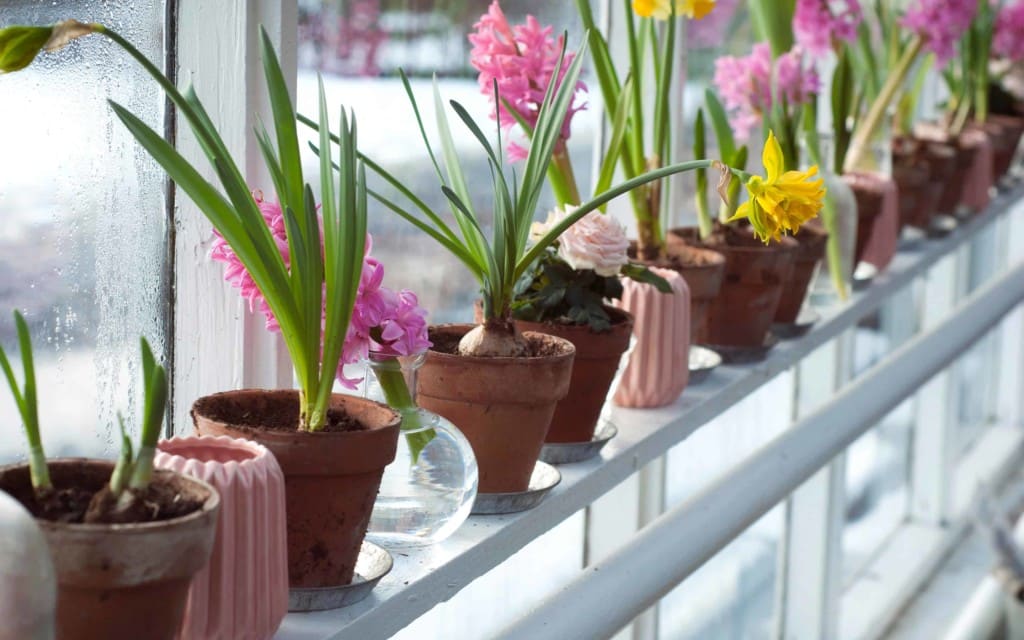
Aromatherapy and plants for better sleep
There are plenty of reasons to use plants for better sleep.
The right foliage in your home doesn’t just look amazing; it also has a positive impact on your mood, causing you to feel more relaxed and peaceful.
Studies have shown that spending time in nature is an easy way to reduce your stress levels, so it only makes sense to bring the outdoors to you when you’re at home.
While the simple sight of plants can be enough to reduce feelings of stress, it’s the scent that transforms the way that we feel. Remember, the olfactory nerve (responsible for smell) sends signals to various parts of the limbic system and amygdala in your brain.
In other words, the smells you encounter when you’re drifting off to sleep change how you feel on an emotional level.
Get the odour of your bedroom right by replacing stagnant sheets with botanical beauty, and you can reduce your heart rate, lower your blood pressure, and even slow your breathing.
All of those physiological responses mean that you’re more likely to fall asleep faster and stay asleep for longer. That’s why essential oils have been shown to have a similar impact as anti-anxiety medications when it comes to biochemical reactions in the brain.
When it comes to choosing the right indoor plants to help sleep, it pays to start by choosing with your nose.
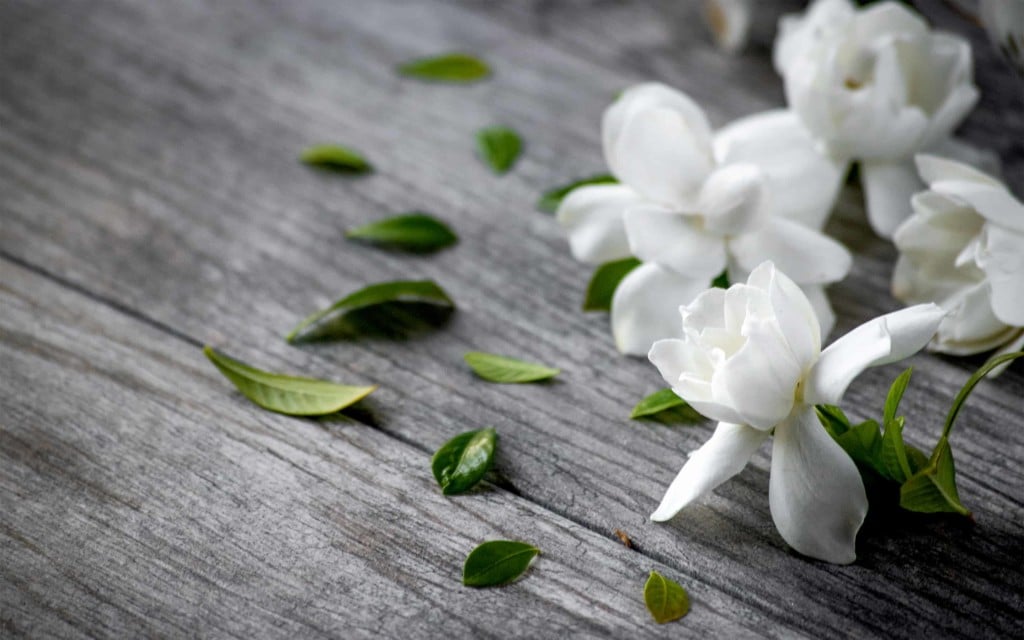
3 plants that help you sleep with the right scent
Scientists haven’t yet discovered how effective plants and aromatherapy oils are when it comes to promoting better rest. However, it’s generally thought that inhaling the right scent can activate the brain responses that are crucial for inducing sleep.
Preliminary research indicates that when it comes to plants that help you sleep, the right odour is essential for promoting relaxation and encouraging sounder sleep. Here are 3 plants that help you sleep with their smell alone.
1. Jasmine in the bedroom
Various studies suggest that jasmine’s intoxicating aroma is ideal for inducing and enhancing sleep patterns. As one of the best indoor plants to help sleep, jasmine gives you a sense of calm and peace when you encounter its smell.
According to one study conducted in West Virginia, simply inhaling the odour of a jasmine flower before you go to sleep can lead to better “sleep efficiency.”
Essentially, the research found that subjects exposed to jasmine didn’t just get to sleep easier; they also woke up feeling more refreshed and had more energy the next day.
Additionally, thanks to the classically beautiful appearance of jasmine, you’re sure to have no problem finding a place to fit it into your bedroom décor. Just remember it needs plenty of direct sunlight.
2. Lavender in the bedroom
Another excellent option on our list of plants that promote sleep, lavender has a delightfully relaxing scent. The odour was named one of the best for relaxation and rest by the National Sleep Foundation, who found that exposure to lavender can reduce blood pressure and heart rate, as well as settling the mind.
Studies have also found that adding lavender to your bedtime routine can also improve your energy levels when you wake up in the morning.
One study from Wesleyan University found that participants with the scent of lavender in their bedroom saw an increase in their slow-wave or deep sleep patterns. The subjects also claimed that they felt more energetic in the morning after the study.
Similar studies from the University of Maryland also revealed that lavender plants in a person’s bedroom could lead to reduced anxiety, better mood, and more efficient sleeping.
3. Gardenia in the bedroom
Lesser-known than lavender and jasmine, gardenia is another of the many plants that help you sleep using scent. Several studies have shown that gardenia is effective at soothing the mind and body.
Its fragrance is even effective enough that some researchers have indicated that it might be a good way to treat people with sleep disorders. One study conducted in Germany found that gardenia is just as good at soothing the mind and reducing anxiety as popularly prescribed pills.
Additional research into gardenia also found that one of the pigments in gardenia called crocetin was useful at improving the sleep quality of men suffering from sleep associated problems.
The only downside with gardenia is that it’s slightly harder to care for than jasmine or lavender. These flowers require a very specific set of conditions to thrive.
Sleep-inducing bedroom with plants
The right scent can go a long way towards giving you the quality and duration of sleep that you need. However, it’s worth noting that the best plants for rest are useful for another reason too.
According to studies conducted by NASA, plants are excellent at cleaning the air in your home, which allows you to breathe more easily through the night.
We all need to be able to breathe easily if we want to sleep well at night. However, with more than 300 harmful compounds present in the indoor atmosphere, it’s hard to get the clean air we need.
Indoor plants that help you sleep can banish the unwanted toxins, chemicals, and other substances that you don’t want in your bedroom, to keep your air as clean and fresh as possible.
Plants simply absorb the toxins in your air through their leaves and disperse them into the soil through their roots. With things like poor air quality, odours, and even moulds affecting our breathing, it’s no wonder that so many of us struggle to get to sleep at night.
Of course, some plants are better at improving air purity than others.
5 air-purifying plants for your bedroom that help you sleep better
Other than making your bedroom look like the ultimate Zen oasis, indoor plants to help sleep can also filter your air and eliminate unwanted toxins. According to a study this is incredibly important, as air pollution can impact our sleep patterns.
The key to successfully purifying your
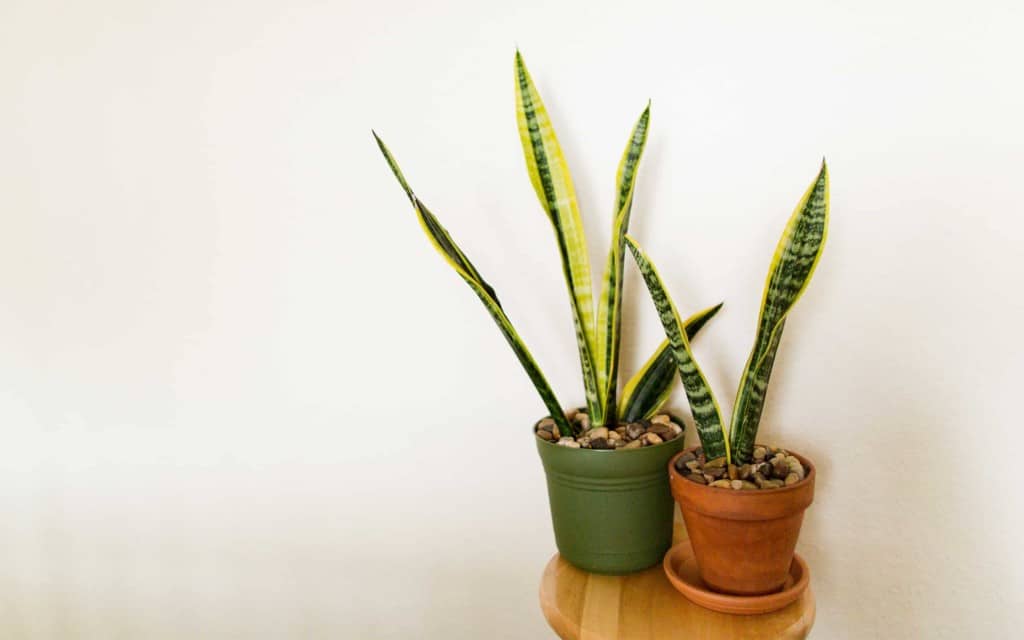
1. Snake plant
Mentioned as part of NASA’s clean air study, this plant is best known for its incredible ability to remove toxins and chemicals from the air. The study examined the unique ability of various plants to remove chemicals from the indoor air.
The snake plant was able to naturally remove toxins like formaldehyde, benzene, xylene, and trichloroethylene.
Aside from keeping your air nice and fresh, the snake plant is also useful for converting carbon dioxide into oxygen at night, rather than during the day. This means that you get access to more oxygen when you’re asleep.
2. Spider plant
The spider plant is an extra animal-themed plant that NASA recommends for your bedroom. This fantastic flora can remove the chemical “xylene” from the air, which means that you’re less likely to wake up feeling uncomfortable.
The clean air study also discovered that the spider plant was the most effective option for removing formaldehyde from the air too. This is a very harmful chemical that you don’t want in your bedroom. Even better? Spider plants are very easy to care for and don’t require a lot of maintenance.
3. Golden pothos
The golden pothos is yet another of the 5 plants to help you sleep that work by getting rid of problems with your air quality.
This botanical superstar gets rid of things like xylene, formaldehyde, and benzene so that you can breathe easily at night. It’s also a very attractive plant with bright green and yellow leaves that are sure to leave you feeling happier during the day.
Golden pothos is a fast-growing vine that creates a waterfall-like display in your bedroom. It’s also excellent for showing off in hanging baskets if you want to create a relaxing ambience.
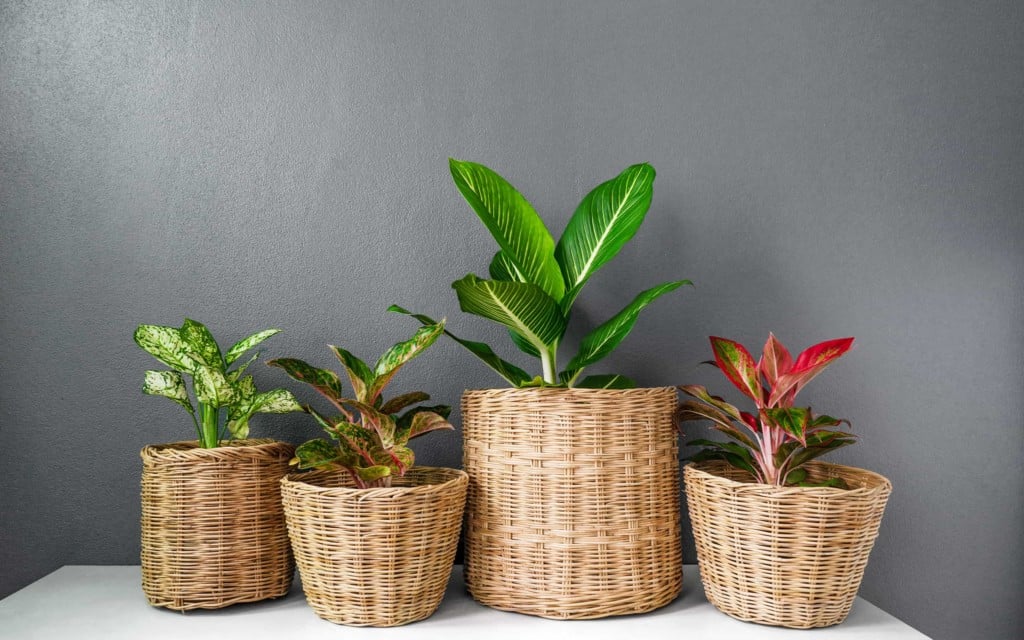
4. Chinese evergreen
The Chinese evergreen is one of the more common options for indoor plants that help you sleep. That’s because it’s capable of withstanding multiple environmental conditions.
Even if you have access to limited light, water, and humidity, the Chinese evergreen should hold up pretty well. These plants have point dark green leaves which provide a distinctive look for your bedroom.
Like the other options on this list, a Chinese evergreen will help you to sleep by cleaning the air and removing toxins that could harm your respiratory system.
5. Chrysanthemum
Finally, the Chrysanthemum plant was discovered by NASA to be another of the most useful plants for better sleep when you’re looking to purify household air. These findings have also been replicated by other researchers over the years.
Chrysanthemums are easy enough to care for because they thrive in lower light conditions. Additionally, this kind of plant can even get rid of the leftover toxins that occur when someone smokes in your house.
With Chrysanthemums, you can get rid of common toxins, and clear away residual particles like benzene, or off-gassing emitted by household printers and paints.
5 Atmospheric indoor plants that help you sleep
Speaking of the best plants for sleep when it comes to improving indoor air quality, there are also plenty of botanicals out there that can assist with giving you a better atmosphere in other ways.
For instance, some plants are particularly effective at adding humidity to the air, whereas others just brighten up your room, so you’re less likely to feel stressed or anxious when you’re going to bed.
Here are 5 plants that help you sleep by affecting the atmosphere.
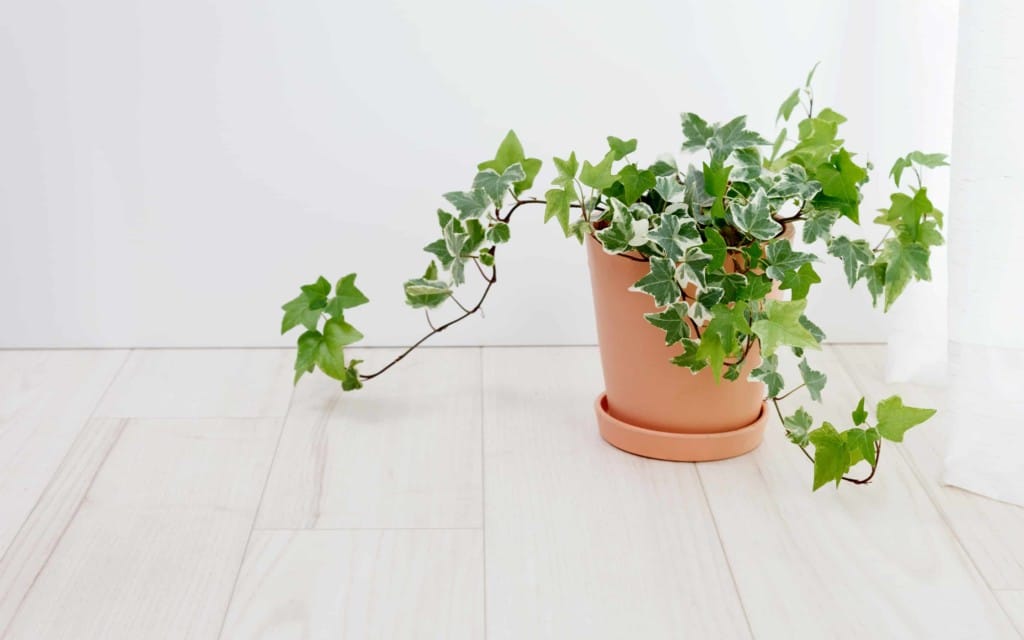
1. English ivy
English ivy is a substance that we often under-appreciate and overlook in this country. Despite its name, English ivy is native to both Europe and Western Asia, and it’s particularly great for people who want to reduce their exposure to allergens — especially if they have asthma.
English ivy eliminates airbourne mould, according to some studies, the plant can even get rid of up to 94% of all the mould spores in your room within 12 hours — that’s pretty impressive.
2. Elecampane
Elecampane is a very pretty option when you’re looking for plants that help you sleep. Also known as Inula Helenium, this substance has long stems and skinny yellow petals — similar to a daisy.
You can find the flowers across Europe and Asia. Known for its medicinal properties, the plant is great for treating things like asthma, bronchitis, and lung diseases.
According to one study, elecampane is 100% effective at reducing the bacteria in the air when it’s present in your bedroom, and it fights back against 200 different species of staphylococci — the bacteria that are most common in causing infections.
3. Peace lily
The plants that induce sleep are useful for many different reasons. While most are excellent at removing toxins and chemicals from the air, some can also improve the humidity in your rooms too.
According to NASA, the peace lily is great at increasing air humidity by up to 5%. This is particularly helpful if you often suffer from dry mouth during the night. Humidity also helps you to breathe easier when you’re sleeping.
Research suggests that low levels of humidity cause static electricity, as well as increased susceptibility to colds and respiratory illness. Peace lilies also have the advantage of being one of the most beautiful plants for better sleep. They rarely require a lot of maintenance either.
4. Gerbera daisy
Unlike many of the other plants for better sleep that we’ve covered so far, the gerbera daisy requires a lot more care and attention. However, it’s also the kind of flower that you’re going to look forward to seeing in any room.
This beautiful blooming flower brings a touch of cheer to any room, which helps in enhancing the atmosphere in its own way.
Additionally, like snake plants and aloe vera, the gerbera daisy is also fantastic at releasing additional oxygen into the air.
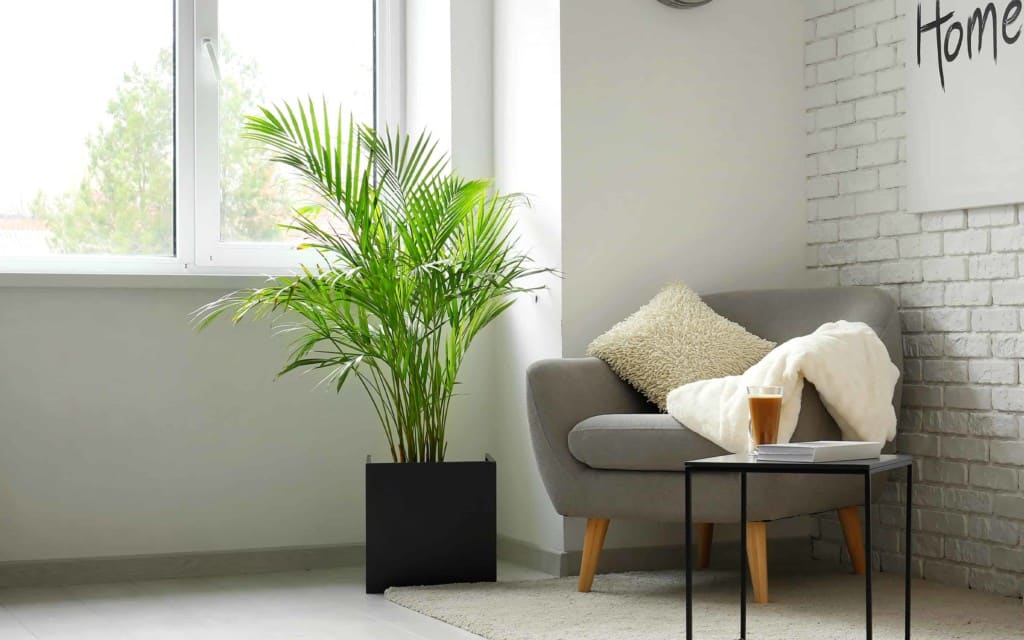
5. Areca palm
Another excellent plant mentioned by NASA’s famous research into the air-purifying qualities of houseplants, the areca palm is excellent at filtering volatile organic compounds from your atmosphere.
The areca palm is also excellent at bringing more humidity to your bedroom, which once again makes it easier to breathe.
Another benefit of the areca palm is that it’s very easy to care for. As long as you don’t overwater it, you shouldn’t have a problem. Some experts also believe that the areca palm can help to lower blood pressure and improve your mental state.
Amazing extracts from plants that promote sleep
If you don’t have a green thumb, or the idea of keeping a plant by your bedside doesn’t appeal to you, then you could always look into best plants for sleep from another perspective.
For instance, you may already know that there are plenty of plants that induce sleep through extracts that you can mix into tea or take as supplements.
Here are some of the plants that promote sleep with unique extracts.
1. Chamomile
Chamomile is a well-known plant that helps to promote sleep by settling the mind and body. Over the years, the substance has been used as a sleep-inducer and mild tranquilizer.
According to various studies, chamomile is excellent for treating insomnia and inducing sedation.
Alongside its calming effects and ability to reduce anxiety, a study from the University of Pennsylvania found that chamomile can even have anti-depressant qualities in subjects suffering from anxiety and depression. Chamomile grows best in cool environments.
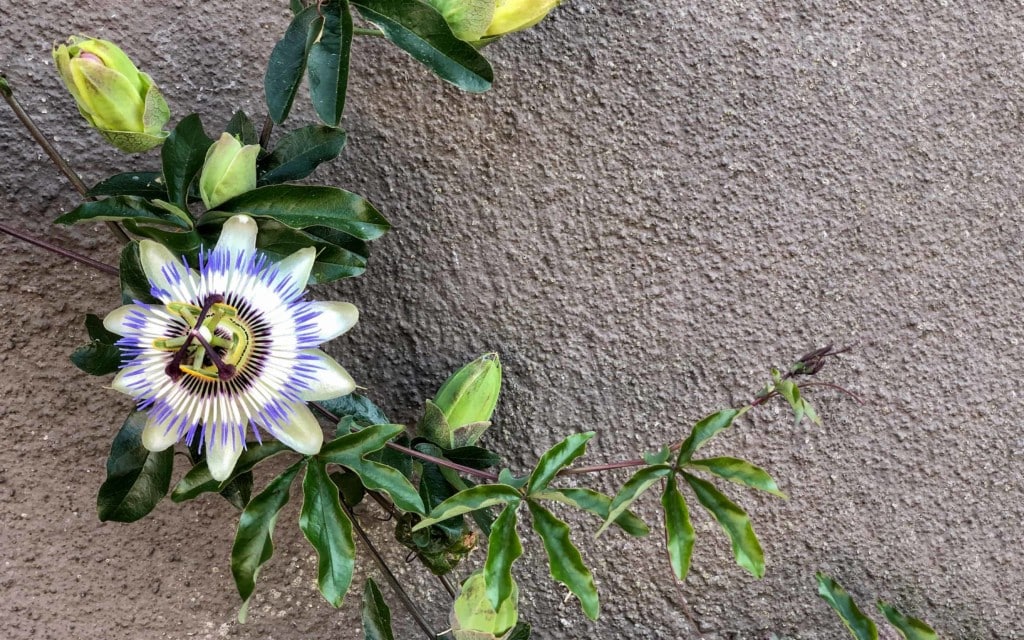
2. Passionflower
The passionflower can be one of the top 18 plants for your bedroom that help you sleep better for a range of different reasons.
Research shows that it has calming effects similar to anti-anxiety medications, and it’s also beautiful enough to give your home an exotic appearance.
The passionflower is often used to reduce anxiety and insomnia by improving the levels of GABA in the brain. One study found that it’s as effective as the drug Oxazepam in treating anxiety.
One study was done with participants drinking a cup of tea made from this flower for 7 days. The study found that the substance enhanced sleep quality, and even had a sedative effect on some people.
3. Sage
Sage has been used for hundreds of years to promote calm and better sleep. According to various cultures, Sage has medicinal properties that are excellent at treating a range of inflammatory problems.
Additionally, sage can also be useful at dealing with skin conditions, digestive issues, and cognitive diseases, according to some experts.
Sage is also said to have a positive impact on the overall health of the body. Many people claim that it’s great as a natural sedative to help you fall asleep faster. Sage can be too relaxing when taken with other sedative drugs, so be careful.
4. Valerian
Valerian is another fantastic option when it comes to indoor plants to help sleep. This substance is used as a natural sleep aid in tea, so it’s no surprise that keeping one of these flowers close to your bedside is a great way to improve sleep quality.
According to research published by some groups, the valerian flower has over 150 chemicals that help to relax the central nervous system.
Because of these properties, valerian extract has positive impacts on patients that need help battling insomnia. Since the flower itself requires a lot of maintenance and care, it’s usually a lot easier to use an extract or pill instead.
5. Hops
Hops are best-known as the ingredient that’s used for flavouring beer; however, the dried flowers have also been used throughout the centuries to calm the mind and support better sleep. The active ingredient in hops is a mild sedative, which makes it great for managing insomnia.
Although it’s possible to brew tea from hops, the flavour is usually too bitter and strong for most people to handle. That’s why it’s more common to see this flower delivered for sleeping remedies in capsule form.
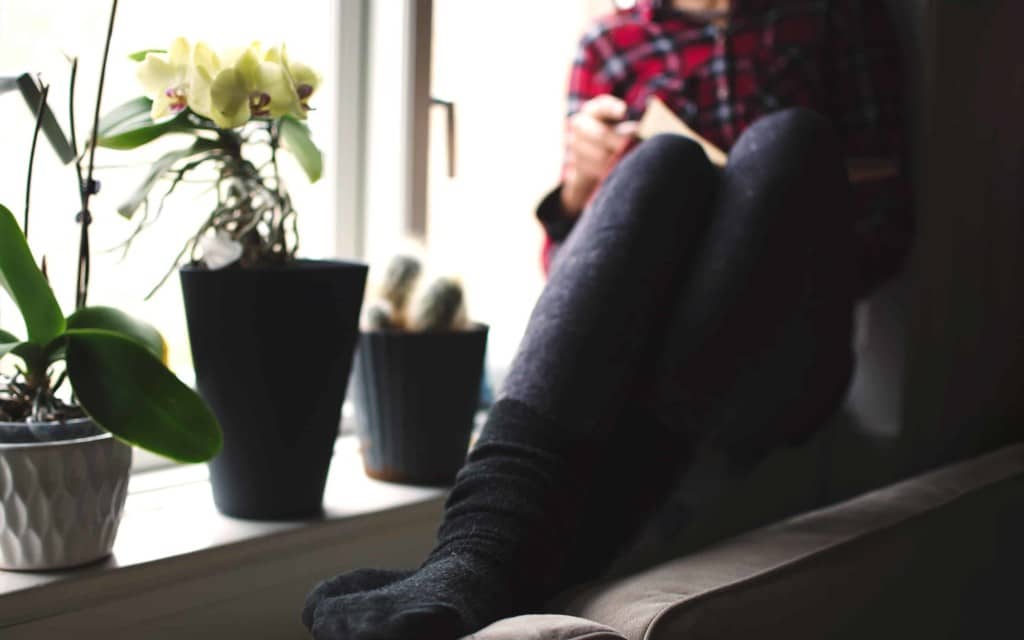
Using plants that help you sleep
Plants are just one of the many tools that people today can use to battle the problems of insomnia and trouble sleeping.
Choose the right plants for your bedroom, and you can instantly improve air quality, getting rid of unwanted toxins and chemicals. Additionally, plants are excellent for reducing the level of background noise that filters into your home from outdoors when they’re placed on a windowsill.
Aside from banishing toxins and mould, plants are also fantastic at brightening up your living spaces, delivering relaxing scents, and giving you all the mental benefits of being out in nature.
Maybe it’s time to take a fresh and flowery approach to improving your sleep.
Siestio. Sleep Matters.
General advice disclaimer
This article contains general tips and advice. However, no diet or exercise program should be started without consulting your physician or other industry professional first. For more information read our full disclaimer here.

